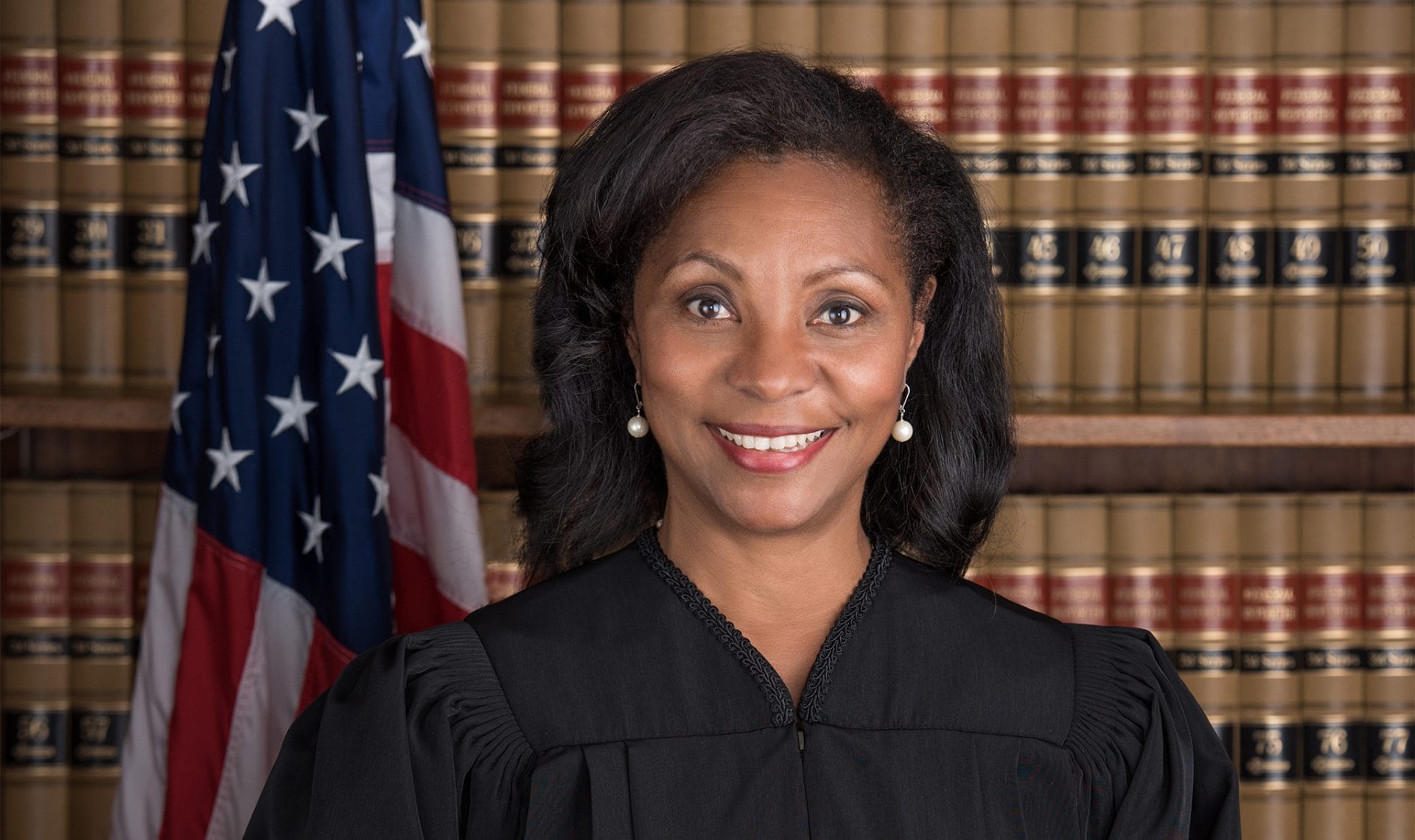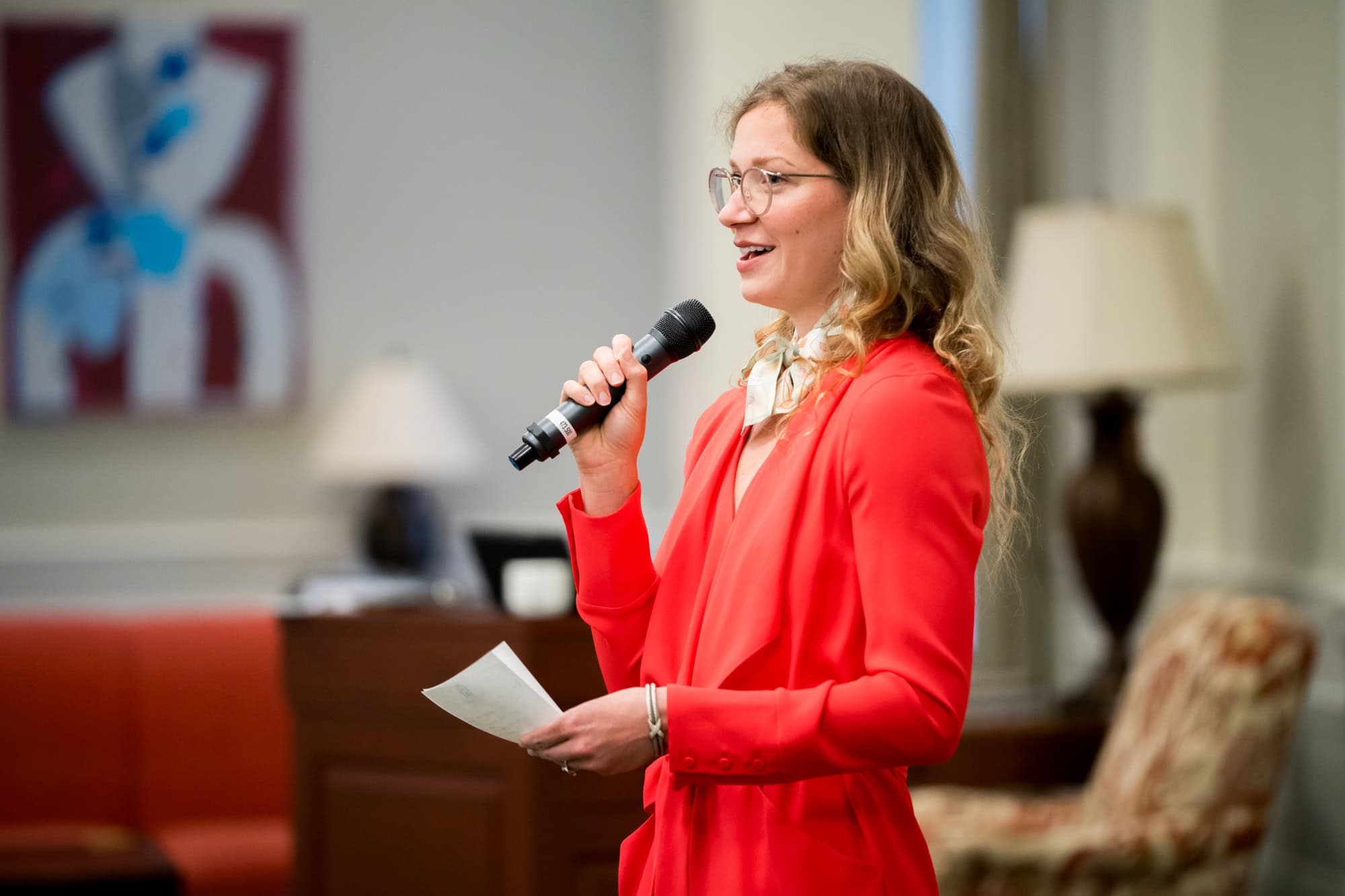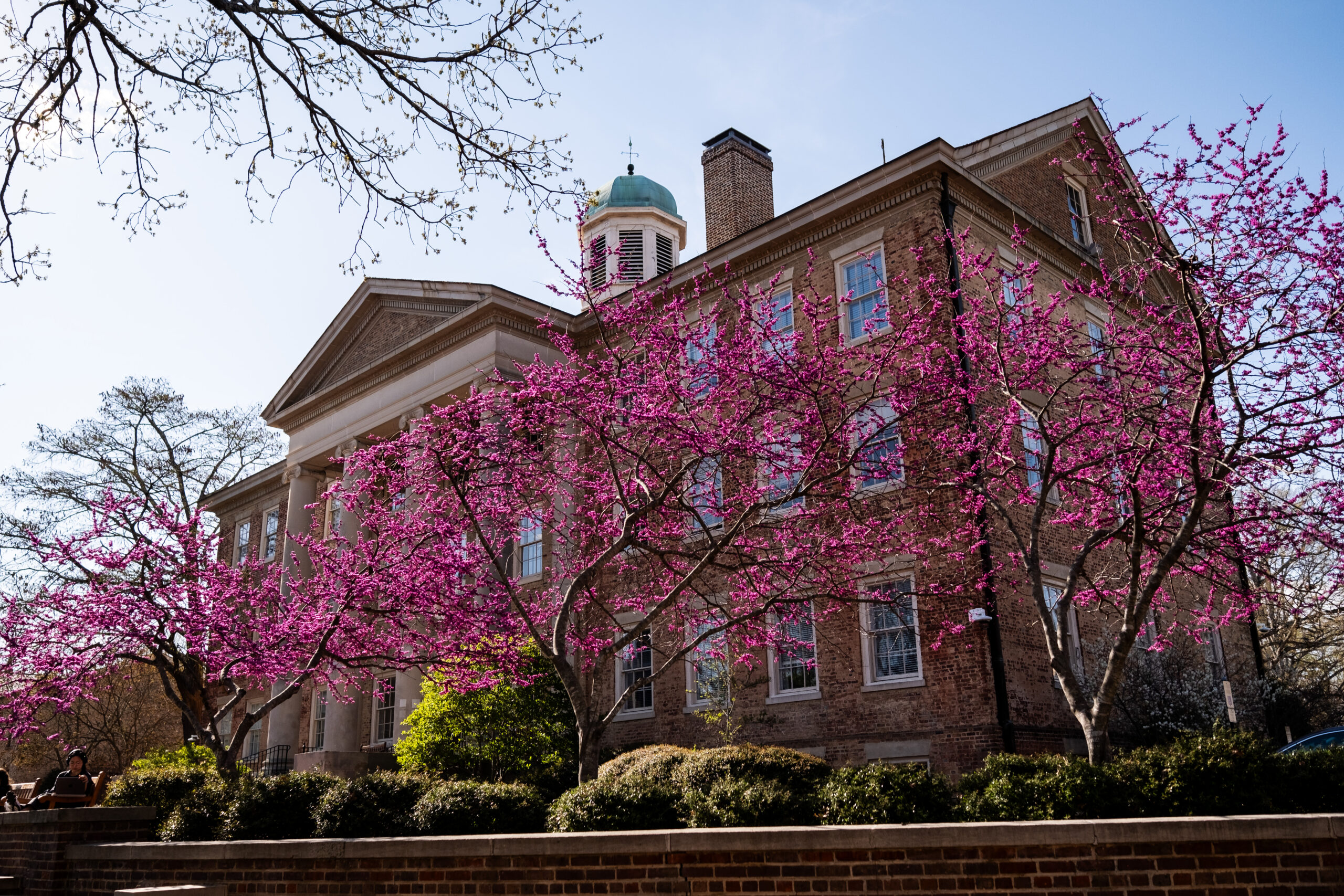
Karen Stevenson ’79 is a U.S. Magistrate Judge for the Central District of California.
Written by Sarah O’Carroll, Morehead-Cain Foundation
When reporters and public relations professionals come calling, Karen Stevenson ’79 knows what to expect: They are going to ask her about being “the first.”
The Washington, D.C. native broke gender barriers in high school by attending The Taft School in Watertown, Connecticut, and joining the almost all-white prep school’s first co-ed class in history. As a high school senior, she became the first African American woman to receive the Morehead-Cain Scholarship.
During her four years at the University of North Carolina at Chapel Hill, the track team captain etched her name in the record books no fewer than 14 times, including one mark that also broke the state record for the 400-meter dash. But a Jim Tatum Memorial award as well as memberships in the Order of the Golden Fleece, Phi Beta Kappa, the Valkyries, and other honorary societies during her four years proved to be only a prelude.
In 1979, the alumna made national headlines as the first woman from the University and the first African American woman from the United States to receive the Rhodes Scholarship. Just two years after the Rhodes Trust opened the scholarship to female candidates, Karen went to Magdalen College at Oxford to study European history.
It might come as a surprise, then, that when asked to reflect on four decades in law since her highly decorated college experience, Karen describes those many accolades as some of her less interesting achievements in the context of the person she has become today.
“Numbers, primacy in certain endeavors, in some ways can be a distraction,” said Karen, speaking from her Los Angeles home. She is a U.S. Magistrate Judge for the Central District of California. “It’s not something that looms large in my own consciousness or something I particularly care to advertise for myself.”
Paying it forward
Rather than renown for being the “first this” or “first that”, Karen said she aspires instead to be appreciated for the ways that she has used her intellect, skills, and experience for the benefit of others.
“The substance of the work and the substance of the service” gives her life meaning, Karen said. “The numbers themselves are only relevant to the extent that they inspire, engage, and uplift others to come through those same doors as well.”
Karen, who will deliver the keynote address during Morehead-Cain’s Virtual Final Selection Weekend on February 26, said her many “firsts” are only valuable to the degree they “allow younger people, particularly younger women and younger women of Color, to believe that they can achieve their dreams and aspire to the highest levels of excellence.”
For her Summer Enrichment Program experiences, Karen interned at a police department in Palo Alto, California, worked at a chemical company in Wilmington, Delaware, and followed her love of languages by studying Russian in Middlebury, Vermont.
Karen said her innate curiosity and openness to trying new things have always been the primary drivers of her decisions. The expectations of others? Not so much.
“One the great blessings of having been awarded the Morehead-Cain Scholarship was that I felt a great deal of freedom to pursue the things that engaged me intellectually and to not fit in any particular box,” said the alumna, who received her undergraduate degree in history. “No one else can tell you what your path should be.”
A CIA spy?
Karen spent the summer following her graduation from Carolina traveling through Eastern Europe studying art and architecture.
In her SEVEN Talk at the 2015 Morehead-Cain Alumni Forum, she described a three-day train ride from St. Petersburg, Russia, to Odessa, Ukraine. Two Soviet Navy sailors joined her cabin on the second day, deeply suspicious of an African American woman traveling alone who spoke Russian.
“They thought I was a CIA operative,” said the alumna, who also speaks French and, before her appointment to the bench, studied Spanish in an immersion program in Costa Rica. “Why else is a Black woman traveling by train in the Soviet Union?”
Years later, Karen would return to Russia to help lead a multiracial delegation for dialogue on interracial and intercultural relations.
The alumna attributes her nontraditional path in life to the trust and support she received from the Morehead-Cain Program, in particular from the “Dirty Dozen,” as the inaugural group of female Morehead-Cain Scholars were referred to by their male counterparts.
“No one ever told me I couldn’t do this,” she said of her varied experiences during her SEVEN Talk. “I’ve been forever grateful for that lesson here and from the Class of 1979.”
It’s a lesson she hopes to pass along to finalists.
“The Morehead-Cain is an opportunity to be a part of a global community that is going to be there to support you, encourage you, inspire you, and maybe even hire you at some point as you grow in your career and find those things that are uniquely yours to do in the world,” she said.
As a magistrate judge, Karen handles a broad range of cases, from business disputes and trademark or patent infringements to Social Security appeals and prisoner civil rights cases, to name a few. Before being appointed to the federal court, the alumna was senior counsel at Buchalter Law Firm. In 2020, she was elected to the American Law Institute.
Karen is a member of the UNC General Alumni Association and previously served on the board of directors for the Arts and Sciences Foundation. The alumna has served the Rhodes Trust as a trustee since 2010. She received her JD degree with highest honors from Stanford Law School.


